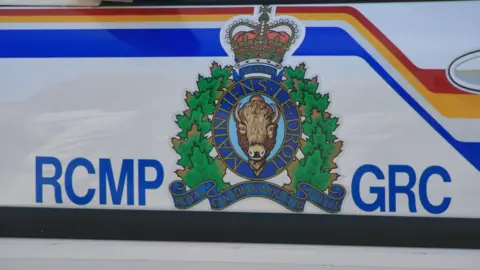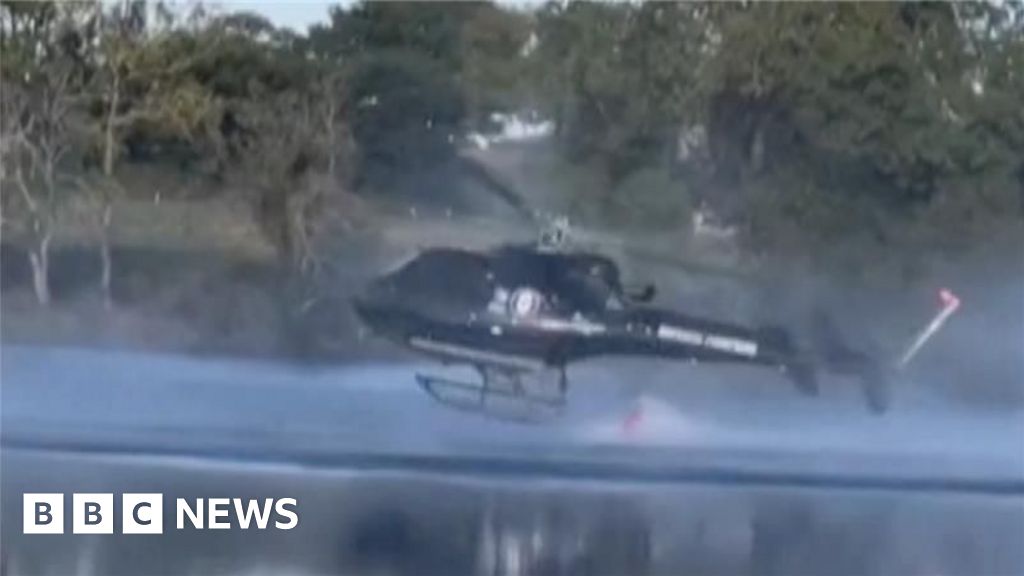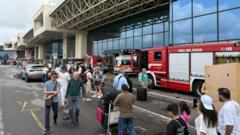As wildfires rage across Manitoba, a second state of emergency has been declared this year, with the province witnessing an alarming number of simultaneous blazes. By July 11, 2025, over 100 wildfires were actively burning, severely impacting communities and threatening public safety.
This year alone, wildfires have consumed approximately 2.5 million acres, the highest burn rate observed in the province since 1994. Weather patterns have contributed significantly to the severity, with an ongoing heatwave exacerbating conditions typical of the wildfire season that spans from March to October. Most ignitions are reportedly caused by natural lightning strikes, with the provincial capital, Winnipeg, recently experiencing severe thunderstorms warning citizens of potential storm-related hazards.
To mitigate the crisis, nine communities, including Snow Lake and Garden Hill First Nation, issued mandatory evacuation orders in light of intensifying fire threats. Premier Wab Kinew emphasized the necessity of a state of emergency, citing the urgent need for additional shelter facilities to accommodate the growing number of displaced residents. Over 4,000 evacuees from Garden Hill were moved to emergency shelters in downtown Winnipeg, utilizing venues like the Billy Mosienko Arena and RBC Convention Center. The federal government is also providing logistical support by deploying an air force plane to assist with evacuations.
Kinew acknowledged the international dimension of the crisis, as firefighters from the U.S. have joined their Canadian counterparts in fighting the blazes. However, he expressed frustration regarding the political discourse surrounding the wildfires. A letter from six Republican Congress members from Minnesota and Wisconsin urging Canada to address smoke issues that cross the border has drawn Kinew’s ire, who described the situation as a politicization of a grave disaster.
In May, an earlier state of emergency was declared following fatalities from the fires and a mass evacuation affecting over 30,000 residents in Manitoba and neighboring Saskatchewan. With continuing threats to life and property, officials remain focused on containing the catastrophic situation unfolding in the province.
This year alone, wildfires have consumed approximately 2.5 million acres, the highest burn rate observed in the province since 1994. Weather patterns have contributed significantly to the severity, with an ongoing heatwave exacerbating conditions typical of the wildfire season that spans from March to October. Most ignitions are reportedly caused by natural lightning strikes, with the provincial capital, Winnipeg, recently experiencing severe thunderstorms warning citizens of potential storm-related hazards.
To mitigate the crisis, nine communities, including Snow Lake and Garden Hill First Nation, issued mandatory evacuation orders in light of intensifying fire threats. Premier Wab Kinew emphasized the necessity of a state of emergency, citing the urgent need for additional shelter facilities to accommodate the growing number of displaced residents. Over 4,000 evacuees from Garden Hill were moved to emergency shelters in downtown Winnipeg, utilizing venues like the Billy Mosienko Arena and RBC Convention Center. The federal government is also providing logistical support by deploying an air force plane to assist with evacuations.
Kinew acknowledged the international dimension of the crisis, as firefighters from the U.S. have joined their Canadian counterparts in fighting the blazes. However, he expressed frustration regarding the political discourse surrounding the wildfires. A letter from six Republican Congress members from Minnesota and Wisconsin urging Canada to address smoke issues that cross the border has drawn Kinew’s ire, who described the situation as a politicization of a grave disaster.
In May, an earlier state of emergency was declared following fatalities from the fires and a mass evacuation affecting over 30,000 residents in Manitoba and neighboring Saskatchewan. With continuing threats to life and property, officials remain focused on containing the catastrophic situation unfolding in the province.




















